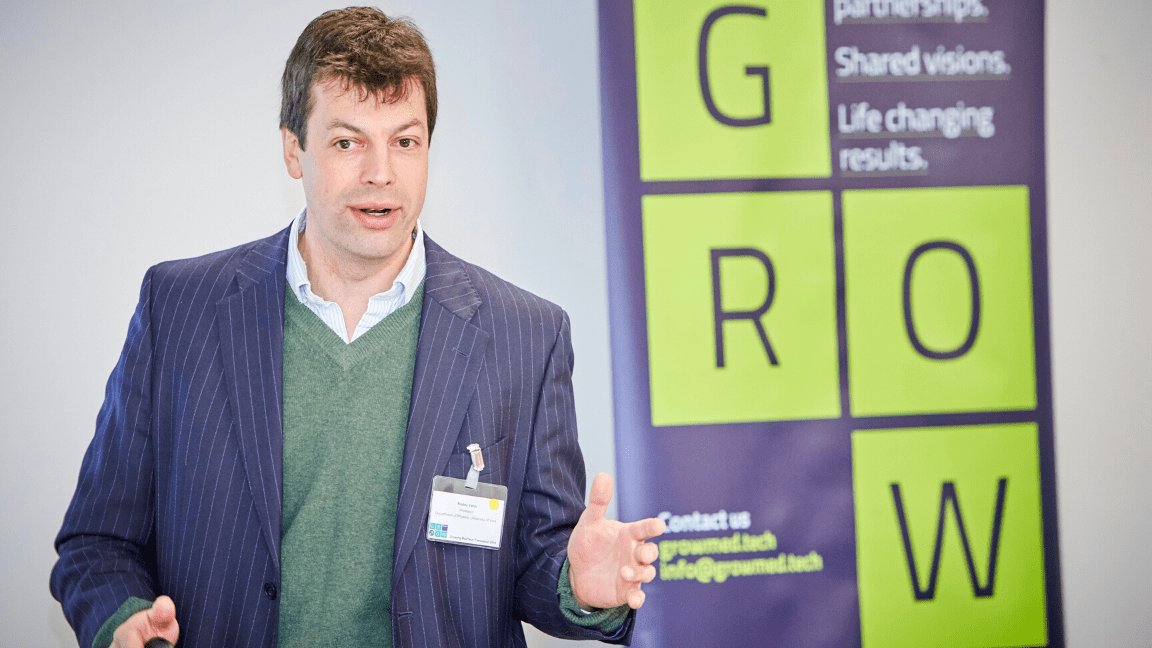Industry and academic experts partner to create new 3D burn imaging device for more effective treatment
A Grow MedTech-funded partnership between University of York academic Prof Roddy Vann, and industry-partner Sylatech is developing a new technology capable of capturing 3D imaging of burns.
This will result in more comprehensive mapping of burn severity, more targeted treatments, and reduced healing times and scarring.
Over 13,000 people in the UK are referred to specialist burn units each year; 50% of which are admitted for ongoing treatment.
Burns can be a complex injury to treat since their severity is determined by the area and depth of the injury, which can continue to develop over the first 72 hours after injury, and vary widely across the wound.
Accurate, rapid and repeated assessment of a burn injury is crucial for choosing an effective treatment course for the best patient outcomes.
Currently, a procedure called Laser Doppler Imaging (LDI), which measures blood flow in the wound, is considered best practice for assessing burns, but a major limitation of LDI is that it can only provide an accurate assessment after a burn has stabilised.
Cost and usability issues can restrict the use of LDI and so in many cases, a visual inspection of burns, where healthcare professionals rely solely on their own experience to assess the severity of the burn and decide the best treatment, is carried out instead.
The solution
A team led by Professor Roddy Vann, in the York Plasma Institute at the University of York, is currently working on a prototype device that is capable of producing accurate 3D images of burns by measuring microwaves naturally emitted by the body.
If successful, this device could greatly advance research into burn progression through direct imaging of the damaged area.
Microwave imaging of burns has been considered in scientific literature since the 1970s but technical challenges have so far limited its translation into the clinic.
The device being developed is innovative in that it combines recent advances in the design of antennas and ultra-fast data acquisition with the potential to make microwave medical imaging both technically and commercially viable.
Scientists from industry partner, Sylatech, are co-inventors of the technology, working alongside Grow MedTech and the York team to commercialise the technology.
Working closely with industry from an early stage is always important and the link with Sylatech is particularly strong, having grown from its early days as a Knowledge Transfer Partnership.
The partnership has been dedicated to creating an impactful technology for end-users, having brought in clinicians from specialist burns centres at the Queen Elizabeth Hospital in Birmingham and Pinderfields Hospital in Wakefield – as well as Patient and Public Involvement groups – to guide their work.
This works to significantly de-risk the technology in the eyes of future investors, and accelerate it towards commercialisation and clinical adoption.
Their most recent Grow MedTech-funded project is allowing them to develop the mathematics and software components required for a portable prototype.
Grow MedTech funding for industry-led collaborations
Proof of Feasibility funding of up to £20,000 is currently available to support 6-month, industry-led medtech innovation projects.
This funding is available to support early-stage feasibility and de-risking of technologies through:
- Connection with academic capability in the Grow MedTech consortium to support the development of a new medical technology
- Investigation or demonstration of the feasibility of a technology concept,
- Early-stage prototype development and testing
- Collaboration with patient and public groups to ensure that the medtech is designed to meet the demands of end-users from the outset.
The focus of the funding should be used to accelerate technologies towards commercialisation or clinical adoption and assisting in the attraction of follow on or external funding.
Successful applicants will receive the support of our six Grow MedTech Technology Innovation Managers who will work with you to understand your technology development and innovation needs and connect you with the academic expertise at our university partners that you need to move your technology forward.

